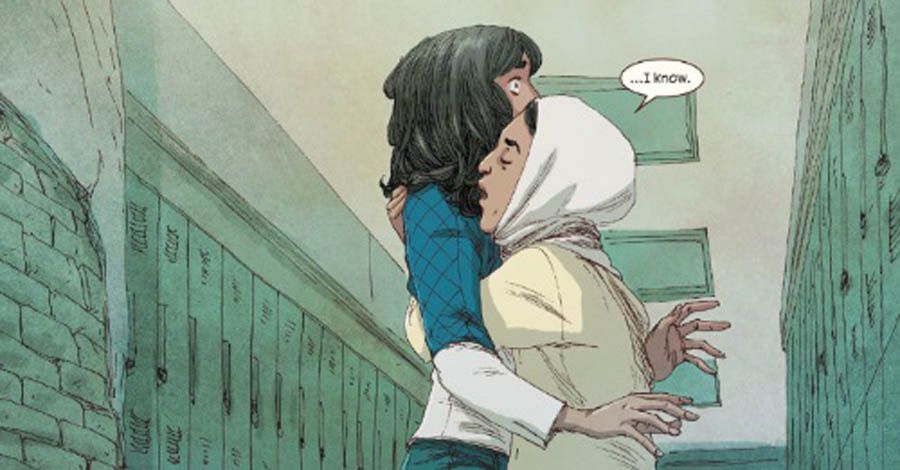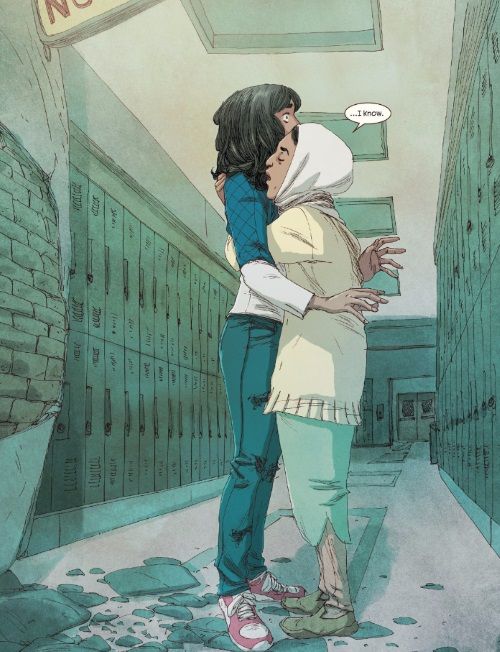I got this shirt for my son, who's now 2 years old (can you believe it?): It has a picture of Batman on the front and says in big, bold letters, "Legend in the Making." It's a nice sentiment ... until you realize how Batman became a legend, and what that means for my husband and me. (Note to self: Don't wear a fancy necklace to the movies).
But most legends don't leave a lot of room for parents.
Sometimes, heroes set off on grand adventures to escape their parents, but more often than not, the mother or father dies. It's how Cinderella and Snow White became saddled with wicked stepmothers, how Tony Stark ended up with a sizable fortune, and why Peter Parker went to live with his aunt and uncle.
Distraction is another way to shoo parents off the stage, although it often appears more like neglect. Beauty's father has to be rescued, Marvel's Power Pack fooled their mom and dad and, again, Peter Parker's Aunt May used to serve up wheatcakes by the truckload, and then turn a blind eye to her nephew's comings and goings. There's also distance, when parents are so busy or physically absent as to keep our heroes free and clear for their adventures. That can involve a singe parent too overworked to notice the superhero living under her roof or, in the case of Cyclops, a father who's off in space, having adventures of his own.
But why does it so often have to be that way?
WARNING: Spoilers for this week's Ms. Marvel #18, so grab your copy and read along!
Why do stories of adventure hate parents so much? Sure, it's easier to explain the inherent recklessness of being a superhero when there's no mom to tell them to get down from there or take a coat. Plus, growing up can be scary, and seeing heroes do so without that parental safety net is another layer to their story. In superhero comics, that allow characters to choose their own families and forge their own bonds. And although it doesn't only apply to the United States, there is a shade of the American Dream in starting with nothing and creating the person you want to be.
That's what makes Ms. Marvel unique among the series published by Marvel, or likely by any company. This week's issue, by G. Willow Wilson and Adrian Alphona, is still addressing the "end of everything" in the Marvel Universe. With her brother exposed to the Terrigen Mists, Kamala Khan has gotten him to safety, as something seems to be making him ill rather than superpowered. Her parents arrive once she's in her civilian gear and, chastise Kamala for not looking out for her brother. It's the kind of thing you'd expect from the "parents just don't understand" section of young-adult fiction. However, as her mom looks down at her, expecting an answer, Kamala becomes brave and, understanding that this is indeed the end of things, tells her the truth: She's been saving as many people as she can as Ms. Marvel.
Normally, that's where the issue would end, leaving us wondering what her parents would think, or perhaps there would be a selection of shocked faces. Maybe they would tell her she's crazy, knocked her head too hard, or patronize her in some way that would only solidify her courage to prove them all wrong. Instead, something beautiful happens.
This is where the issue ends: with a mother's love and a daughter's surprise.
For these past 18 issues, the new Ms. Marvel has greatly relied on her community to learn and grow into the person she wants to be. We've had the time to get to know her family, friends and where she lives, because that's a part of her. It's not just Jersey City that she's a hero for, but her peers, her family's culture and, most importantly, herself.
While the absent family would've meant Kamala was left on her own to learn these lessons, we've instead seen her be supported by those around her, from Bruno taking care of her cover story and costume to her imam and father offering some honest advice.
Kamala is still her own person, but she has so much support to help her learn and grow that being a superhero seems almost a given.
Another part of the American Dream is to be accepted for who you are. That doesn't always happen, unfortunately, and sometimes it only comes after a long, difficult fight.
But fiction can kind of help us through that rejection and give us hope when the people who raised us don't understand who we are or want to be. On the other hand, seeing acceptance in such a simple act as a hug can also give a lot of strength to readers, no matter their background.s Fiction can show us the way to be better people, and what's more hopeful than that?



